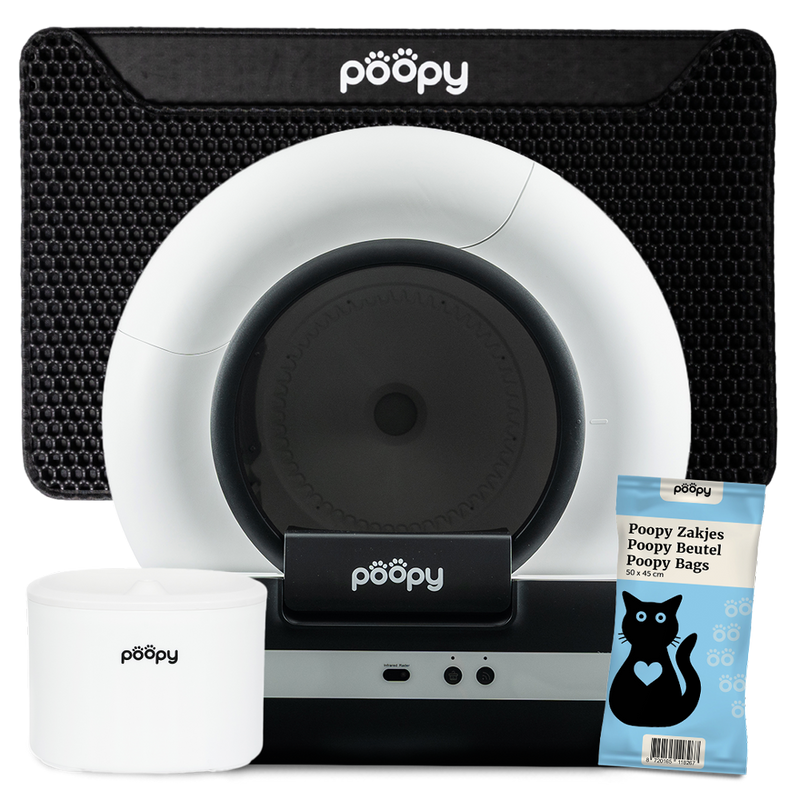You're going to buy a kitten?
Fun and exciting ... but do you know what's really involved? Raising a kitten is not something you just "do". In the first year of her life you lay the foundation for the rest of her life. And without the right approach, that fluffy ball will turn into an insecure, stressed-out cat faster than you'd like.
That's why this blog is different from standard tips & tricks. I take you step by step through four important phases that every cat goes through:
Preparation, the first month, the first six months and the first year.
In each stage, you'll discover exactly what your kitten needs, what many people do wrong, and how to work from day one to create a stable, social, and confident cat.
Ready to get it right? Then this is the guide you're looking for.
The preparation, four weeks before your kitten comes home
Raising a kitten does not begin the day you pick him or her up. It starts weeks before. Because good preparation prevents stress, accidents and unnecessary behavioral problems. This phase is all about safety, overview and rest - for you and for your kitten.
A safe, cat-friendly environment
Kittens are curious, fast, playful ... and still have zero sense of danger. That's why it's important to check your home carefully for risks:
-
Hide all loose cords.
-
Always close cabinets, washers and dryers tightly.
-
Remove poisonous plants and put cleaning supplies out of sight.
-
Consider small objects such as rubber bands, coins or hair elastic bands - these can be dangerous if swallowed.
See your home literally through the eyes of a baby cat. Anything that rustles, shines or dangles becomes a toy.
Getting stuff ready before arrival
Do you want your kitten to feel comfortable quickly? Then everything he needs should already be ready the moment he comes in. Consider:
-
A quiet place to sleep, preferably in a slightly higher place or with a canopy.
-
A separate place for eating and drinking, far from the litter box.
-
A litter box In a quiet, easily accessible place.
-
A scratching post cat near the sleeping place: kittens scratch after sleeping.
-
Toys that are soft, light and safe to explore.
Find a veterinarian before the arrival
Another thing people often forget: find a vet ahead of time and schedule the first checkup if possible. That way you won't have to google last-minute later if something goes wrong.
And is your kitten not yet microchipped or vaccinated? Then you can make arrangements for that right away - important for later stages, like going outside or meeting other animals. Also read our blog on:
Letting your cat go outside for the first time
The first month, your kitten gets used to his new environment
The first few weeks are all-important. In this phase, your kitten unconsciously lays the foundation for his later behavior. Whether he becomes social, relaxed and confident or, on the contrary, anxious, withdrawn or easily overexcited - depends greatly on how you handle this period.
Get used to the house, not the chaos
Let your kitten get used to it slowly in the beginning. Don't give him access to the whole house right away, but start with one room. There he can quietly absorb the smells, get to know his sleeping place and discover where the litter box and food are. Too many stimuli all at once make him restless.
Patience is a virtue, so don't start dragging your kitten everywhere right away. Let visitors be minimal. Focus on a few set moments of interaction, play and rest. The rest will come later.
Sobriety begins with overview and repetition
From about three weeks of age, kittens instinctively know they need to dig to do their business. But in a new home, they need to learn where to do so. Put the (litter box) visible, let him go in the box briefly after eating or sleeping, and praise him when he does it well.
Don't use scented cat litter yet; it may actually scare him off. And be patient. One accident does not make him a slob.
Also read our blog on (how long to leave a cat alone). In it you will discover when and how to teach a kitten to cope with your absence without feeling lost.
Playing = learning = confidence
A raising a kitten without play is impossible. Play is the way your kitten learns: about you, about his body, about boundaries and about trust.
Use toys that you can move, such as a fishing rod or mouse. Don't let him play with your hands or feet. What is funny now will soon become painful or irritating to an adult cat.
Also remember: young kittens have a short attention span. Rather play 3× a day for 5 minutes, than half an hour at a time.
Fixed places, fixed routines
Your kitten feels safe with predictability. Mealtimes, naps, play, interaction - keep it rhythmic and calm. This is how you build a bond of trust and help your kitten get grounded faster.
Reward positive behavior, ignore unwanted behavior. Punishment does not work with cats; it only makes them more insecure or defensive.

The six-month phase, puberty and character development
Around six months, your kitten changes from a toddler into an adolescent. His body is growing rapidly, his hormones are starting to kick in, and his character is becoming more and more apparent. This is the phase when boundaries become important - and when small mistakes can later become major behavioral problems.
Puberty
Your kitten is testing you out. Literally. Things that were "not allowed" before, he tries again. He looks for boundaries: can I get on the kitchen counter? What happens if I nibble the plants? How many times do I have to meow before I get attention?
Stay calm, consistent and clear. Don't react angrily, but repeat desired behavior and reward it. For example, reward him when he scratches his (scratching post cat) instead of on your couch.
Castration or spaying, This is the time!
Starting at six months, it is wise to have your kitten spayed or neutered. Cats become fertile around this age, and this can lead to restless behavior, spraying, meowing and escape attempts.
Many people wonder: When is a cat no longer a kitten? In terms of behavior, that moment is often around seven to eight months - and hormones play a big role in this. Spaying or neutering not only prevents unwanted behavior, but also health risks and litters.
Also get immediate advice on vaccinations, deworming and the use of a good (flea collar cat) if you haven't already done so. Read our blog on Worms!
More independence, but also more risks
Your kitten is starting to become more independent now. You may be thinking about letting him out soon. Do so only if he is microchipped, listens well to you and is familiar with the environment.
If your cat is just indoors, this is the time to make his living environment more challenging: climbing furniture, window sills, new toys ... and maybe even an extra (accessory) such as a moving toy or feeding puzzle. If you plan to leave your cat alone, read this Blog quickly:
How long is it responsible to leave your cat alone?
The first year, from kitten to cat
After twelve months, your kitten is officially an adult. But make no mistake: in behavior and emotion, he is still learning. This is the phase when you see the results of everything you built up in the first months. A stable cat does not come naturally - it comes from a year of structure, attention and trust.
Mature behavior, new needs
Your cat is now physically mature and also more mentally stable. He knows your routines, knows what is and isn't allowed, and often naturally seeks his own place in the house. However, all sorts of things can still change: territorial behavior, more need for rest, or even jealousy when other animals or people arrive.
Keep actively challenging your cat - physically and mentally. Alternate toys, encourage natural behaviors such as chasing, climbing or sniffing, and occasionally offer him a new place or routine.
Long-term health
Now that your cat is an adult, his nutritional needs are also changing. Switch slowly to food for adult cats and possibly consult with your veterinarian about whether a switch to special (cat food) is necessary, such as if your cat has a sensitive stomach or a predisposition to bladder problems. Also, watch for signs of problems, such as excessive licking or unrestraint - this may indicate something like a (cystitis cat).
Remember to deworm, vaccinate and schedule checkups regularly. Prevention remains essential, even if your cat "never has anything."
Alone at home? Time for smart solutions
Because your cat is now accustomed to your rhythm, he can usually be fine on his own for a few hours. But that doesn't mean you should leave him to his own devices. A handy (drinking fountain) provides fresh water even when you're not around. And with a ( self-cleaning litter box ) his environment stays clean - something that prevents stress and health problems.
Also read our blogs about (your cat has worms, this you need to know) and (when can your cat go outside), so you know exactly how to keep your adult cat healthy and safe.







































































